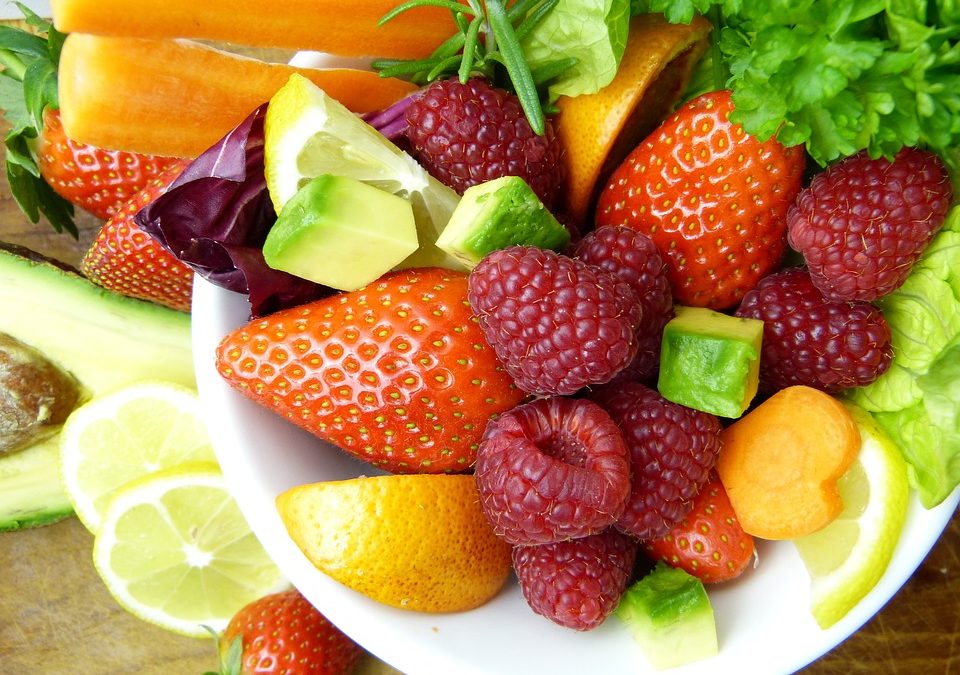What is Inflammation
Inflammation is your body’s natural response to bacteria, viruses, foreign bodies, etc. It’s your body’s way of protecting itself and promoting healing.
Two types of inflammation
As inflammation is part of the body’s immune response, it is beneficial in some ways to repair any damaged tissue or defend your body against pathogens. However, inflammation can also be harmful to one’s health. Depending on the type, inflammation can be considered a friend or a foe.
Inflammation can be acute or chronic. Acute inflammation is necessary for your body’s healing and does not last long. For example, when you fall you will experience bruising and pain. This begins your body’s healing process. The critical thing to note is that once your body has healed, the inflammation will go away.
Chronic inflammation, on the other hand, is a common cause, and a common symptom, of many health issues. It is linked to serious health conditions and can be dangerous. It is usually caused by unhealthy lifestyle and dietary choices, as well as environmental factors. Some well-known causes of chronic inflammation are:
- High Stress Levels
- Regular intake of heavily processed foods, refined sugars, preservatives and other unnatural ingredients
- Food allergies and Food intolerances
- Being Overweight
- Not getting enough Sleep
- Environmental Toxins
Chronic inflammation contributes to most serious diseases that can possibly lead to death. A pathogen wreaking havoc inside your body.
What are the main causes of Inflammation in the Body
The Institute for Quality and Efficiency in Health Care identifies the following as the main causes of inflammation:
- Pathogens such as a bacteria, viruses or fungi
- External injuries through foreign objects (ie rusty nail)
- Chemical effect
- Medical conditions that often end with “-itis” (ie bronchitis, dermatitis, cystitis)
Yet, there are also a number of leading factors related to diet and lifestyle that cause long-term inflammation in the body. To repeat, these include:
- Eating inflammatory foods
- Blood sugar imbalance
- Leaky gut syndrome
- Chronic Stress
- Bad sleeping habits
- Environmental toxins
Aside from controlling your stress levels and building healthy sleeping habits, it is extremely important to be mindful about what you eat. If you eat like the average American, your diet is packed with refined sugars, starches, processed foods and trans-fats. These types of food cause your blood sugar to rise rapidly, resulting in a drastic drop in your cortisol levels, thereby triggering the immune system to produce more pro-inflammatory cytokines and reduce its production of anti-inflammatory cytokines.
What are the dangers of Inflammation in the Body
Inflammation is at the root of practically all-known chronic health conditions.
There are many ways chronic inflammation can damage your body:
- Memory loss and cognitive decline
- Increased cardiovascular risk
- Abnormal growth of healthy cells
- Compromised digestion
- Weight gain
- Loss of muscle
- Accelerated skin aging
- Joint pain and loss of mobility
It affects practically all parts of the body – from your lungs and kidneys to your skin and bones. Pro-inflammatory cytokines also cause autoimmune reactions in the brain. This can lead to depression, memory loss and even neurological diseases such as Alzheimer’s. Numerous autoimmune diseases are also linked to chronic inflammation.
It is important not to minimize or brush off chronic inflammation, as it is the underlying cause of serious and life-threatening medical conditions such as heart disease, diabetes and cancer.
What diseases are linked to Inflammation in the Body
Diabetes, Arthritis, Heart Disease, Depression, Alzheimers and even Cancer have been linked to chronic inflammation.
Recommendations to Prevent and/ or Lower Inflammation
Lose weight if necessary to achieve a healthy weight, eat a diet rich in fruits and vegetables, and low in fats, processed foods and sugars. Get more sleep, exercise, don’t smoke, see your health care provider for regular physical check ups, and good dental health is critical as well. Therefore, Inflammation can be reduced with a healthier diet, proper hydration, regular movement, stress regulation and better sleep.
Having a healthy and nutritious diet remains a very important aspect of inflammation management, as it leads to a healthier weight and stable blood sugar levels. It is important to avoid inflammatory foods such as table salt, processed meat and artificial sweeteners. Instead, opt for a diet that is rich in fruits and vegetables.

What Foods are Anti-inflammatory
Studies and research show us that yup, you guessed it, fruits and vegetables, specifically the rich colored ones, contain polyphenols or plant-based compounds that fight inflammation. You’ll want to include a variety of fruits and vegetables because they each contain different polyphenols.
- Fruit: blueberries, cherries, pomegranates, citrus fruits, pineapple, strawberries, pears, figs, kiwis, apples, peaches, plums, nectarines, melons, mangos
- Dark Green leafy vegetables like kale, spinach, collard greens, cabbage, broccoli, brussel sprouts and other colored veggies like beets, tomatoes
- Sweet potatoes
- Cold water and fatty fish: like salmon, albacore tuna, mackerel, sardines
- Nuts & seeds: almonds, chia seeds, flax seeds, hemp seeds, pumpkin seeds, walnuts
- Monounsaturated fatty acids: avocado, olive oil
- Garlic, and herbs such as turmeric, ginger, curry, rosemary, thyme, sage, and oregano
- Green tea, lemons and limes – water, on salads, sauces and dressings
Limit these foods as much as possible
- Sugars and Refined carbohydrates, ie. white bread, cookies, pastries
- Sugar sweetened beverages, ie. soda
- Processed foods and processed meats, ie. hot dogs, sausages
- Fried foods, shortenings, lard

So, at this point you may be thinking, as I was, how do you put all these nutrition guidelines together? You could spend hours trying to figure out how to fit all this information into a daily diet, right? Thank goodness it doesn’t have to be difficult.
If you are looking for a healthy eating plan that closely follows the guidelines of anti-inflammatory eating, I like the Mediterranean diet, which is high in fruits, vegetables, nuts, whole grains, fish, and healthy oils. I recommend starting with this and then progressing to Plant Based Eating.
What else can you do to help with inflammation? Stay informed because there are new studies as well as new products coming out all the time. Our ‘O, So Nice!’ Soothing Cream can help with the aches and pains that arise from inflammation. Check it out and buy some in our store.



 Don’t let all these long scientific names scare you! Our products are Cruelty-Free and Free of Parabens, Phthalates, Silicone, Propylene, Glycol, Mineral Oil and Sunscreens.
Don’t let all these long scientific names scare you! Our products are Cruelty-Free and Free of Parabens, Phthalates, Silicone, Propylene, Glycol, Mineral Oil and Sunscreens.
 Aqua (Water), Carthamus Tinctorius Seed Oil (Safflower Oil), Butyrospermum Parkii Butter (Shea Butter), Helianthus Annuus Seed Oil (Organic Sunflower), Dimethyl Sulfone (MSM), Vitis Vinifera Seed Oil (Grapeseed Oil), Menthol, Mentha Piperita Oil (Peppermint Essential Oil), Prunus Armeniaca Kernel Oil (Apricot Kernel), Copernicia Cerifera Cera (Carnauba Wax), Simmondsia Chinensis Seed Oil (Organic Jojoba Oil), Gaultheria Procumbens Leaf Oil (Wintergreen Essential Oil), Mentha Spicata Herb Oil (Spearmint Essential Oil), Camphor, Eucalyptus Globulus Leaf Oil (Eucalyptus Essenatial Oil), Cassia Angustifolia Seed Extract (botanical hyaluronic acid), Aloe Barbadensis Leaf Juice (Organic Aloe), Arnica Montana Extract (Organic Arnica), Centella Asiatica Extract (Organic Gotu Kola), Equisetum Arvense Extract (Horsetail), Geranium Maculatum Extract (Wild Geranium), Taraxacum Officinale Extract (Dandelion), (2s)-2-Amino-5-guanidinopentanoic Acid, Acrylates/C10-30 Alkyl Acrylate Crosspolymer, Phenoxyethanol, Ethylhexylglycerin
Aqua (Water), Carthamus Tinctorius Seed Oil (Safflower Oil), Butyrospermum Parkii Butter (Shea Butter), Helianthus Annuus Seed Oil (Organic Sunflower), Dimethyl Sulfone (MSM), Vitis Vinifera Seed Oil (Grapeseed Oil), Menthol, Mentha Piperita Oil (Peppermint Essential Oil), Prunus Armeniaca Kernel Oil (Apricot Kernel), Copernicia Cerifera Cera (Carnauba Wax), Simmondsia Chinensis Seed Oil (Organic Jojoba Oil), Gaultheria Procumbens Leaf Oil (Wintergreen Essential Oil), Mentha Spicata Herb Oil (Spearmint Essential Oil), Camphor, Eucalyptus Globulus Leaf Oil (Eucalyptus Essenatial Oil), Cassia Angustifolia Seed Extract (botanical hyaluronic acid), Aloe Barbadensis Leaf Juice (Organic Aloe), Arnica Montana Extract (Organic Arnica), Centella Asiatica Extract (Organic Gotu Kola), Equisetum Arvense Extract (Horsetail), Geranium Maculatum Extract (Wild Geranium), Taraxacum Officinale Extract (Dandelion), (2s)-2-Amino-5-guanidinopentanoic Acid, Acrylates/C10-30 Alkyl Acrylate Crosspolymer, Phenoxyethanol, Ethylhexylglycerin